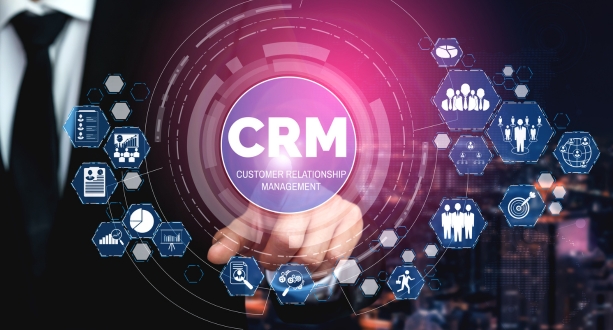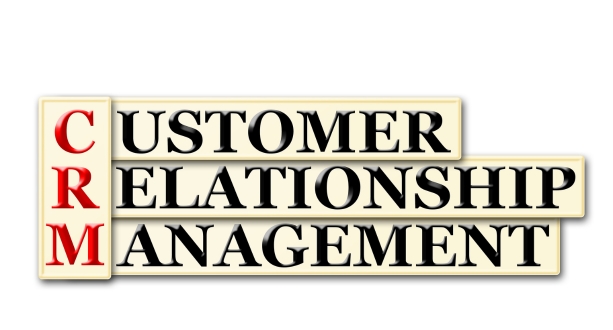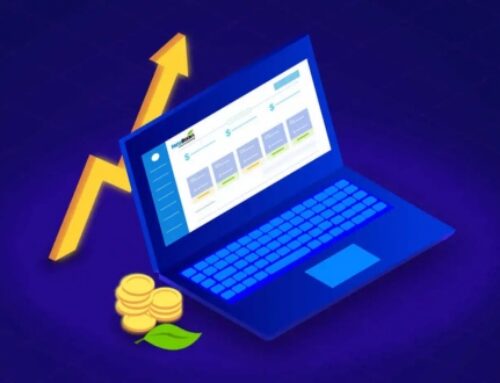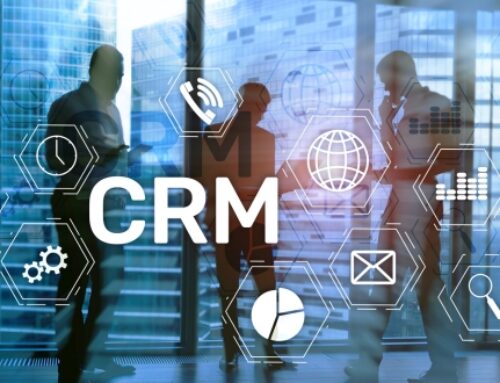Introduction
Navigate the Legal Maze with Confidence: Salesforce CRM Legal Services for Seamless Compliance

The Evolving Legal Landscape: Challenges and Opportunities in the Digital Age
The legal landscape is undergoing a seismic shift. Data privacy regulations like GDPR and CCPA are reshaping how businesses handle sensitive information. Evolving compliance requirements and regulatory hurdles demand agility and precision. In this dynamic environment, legal teams face immense pressure to:
- Navigate a complex web of regulations: From data privacy to industry-specific compliance, legal teams must navigate an ever-growing maze of regulations and adapt to their constant evolution.
- Minimize risk and ensure data security: Protecting sensitive client and business data is paramount. Robust security measures and comprehensive data governance are essential to prevent breaches and maintain compliance.
- Boost efficiency and streamline operations: Manual processes and siloed data hinder productivity. Legal teams need a centralized platform to manage tasks, collaborate effectively, and optimize workflows.
- Enhance client relationships and deliver value: Clients expect seamless communication, proactive service, and personalized legal support. Legal teams need tools to foster strong client relationships and deliver exceptional service.
Why Salesforce CRM for Legal Teams? A Secure and Efficient Platform for Streamlined Operations
Salesforce CRM stands out as a powerful solution for legal teams facing these challenges. Its secure, cloud-based platform offers a plethora of benefits:
- Enhanced compliance: Built-in features like data access controls, audit trails, and compliance tools help legal teams meet industry-specific regulations and ensure data privacy.
- Improved risk management: Identify and mitigate potential legal risks proactively with features like risk assessments, issue tracking, and reporting tools.
- Increased productivity: Automate repetitive tasks, streamline workflows, and boost efficiency with built-in automation and collaboration features.
- Enhanced client relationships: Foster seamless communication, deliver personalized legal support, and build stronger client relationships through centralized client information and communication tools.
- Scalability and flexibility: Adapt to changing needs and regulations with a platform that scales with your legal team and evolves alongside your business.
Unleashing the Benefits: Enhanced Compliance, Improved Risk Management, and Increased Productivity
By embracing Salesforce CRM, legal teams can unlock a treasure trove of benefits:
- Reduce the risk of compliance violations and legal penalties with robust data governance and built-in compliance tools.
- Proactively identify and mitigate potential legal risks before they escalate, minimizing reputational damage and financial losses.
- Streamline legal workflows and automate routine tasks, freeing up valuable time for high-value legal work and strategic initiatives.
- Foster seamless communication and collaboration across the legal team and with clients, improving client satisfaction and service delivery.
- Gain valuable insights into legal operations and performance through comprehensive reporting and data analytics, enabling data-driven decision-making.
Key Challenges for Legal Teams in the Salesforce CRM Era:

Taming the Data Beast: Data Privacy, Security, and Compliance Concerns in CRM Adoption
The adoption of any CRM platform, especially in the legal field, demands careful consideration of the data it manages. Legal teams juggle sensitive client information, contracts, and confidential documents, making data privacy, security, and compliance paramount concerns. Let’s delve into the key challenges legal teams face in the Salesforce CRM era:
Data Privacy Regulations: Navigating GDPR, CCPA, and Beyond
The global landscape of data privacy regulations is a complex labyrinth. The General Data Protection Regulation (GDPR) in Europe and the California Consumer Privacy Act (CCPA) in the US are just two examples of evolving mandates that legal teams must navigate. These regulations dictate how personal data is collected, stored, used, and deleted, imposing strict penalties for non-compliance.
Challenges:
- Understanding and interpreting the nuances of different regulations: Each regulatory framework has its own intricacies, requiring legal teams to stay updated on amendments and interpretations.
- Implementing robust data governance practices: Ensuring data is collected with consent, minimized to essential needs, and securely stored requires comprehensive data governance policies and procedures.
- Meeting data subject access requests: Individuals have the right to access, rectify, and erase their data under these regulations. Legal teams must develop efficient processes to handle such requests promptly and accurately.
Salesforce CRM Solutions:

- Data access controls and user roles: Granular control over who can access and edit data ensures sensitive information is protected.
- Audit trails and reporting: Comprehensive audit logs track data access and modifications, providing auditability and facilitating compliance investigations.
- Data encryption and security features: Salesforce offers robust encryption and security measures to protect data at rest and in transit.
- Data deletion tools: Legal teams can easily delete data upon request or automatically based on retention policies.
Data Security Threats: Mitigating Risks and Ensuring Information Protection
Beyond regulatory compliance, legal teams must constantly be vigilant against data breaches and cyberattacks. The digital landscape is rife with threats, from phishing scams and malware to ransomware attacks, all aiming to steal or exploit sensitive information.
Challenges:
- Identifying and mitigating vulnerabilities: Legal teams need to assess their systems regularly for vulnerabilities and implement appropriate security measures.
- Managing user access and privileges: Granting least privilege access and monitoring user activity minimizes the potential for unauthorized access and data misuse.
- Responding to security incidents: Having a robust incident response plan in place ensures swift and effective action in case of a breach, minimizing damage and protecting client data.
Salesforce CRM Solutions:
- Multi-factor authentication: Adding an extra layer of security beyond passwords helps prevent unauthorized access.
- Security updates and patches: Salesforce continuously updates its platform with security patches, ensuring legal teams benefit from the latest protection.
- Data loss prevention (DLP): DLP tools can prevent sensitive data from being accidentally or maliciously shared or leaked.
- Threat intelligence and security analytics: Proactive monitoring and analysis of security threats allow legal teams to identify and address potential risks before they escalate.
Regulatory Compliance: Meeting Industry-Specific Requirements with Salesforce CRM
In addition to data privacy and security concerns, legal teams must also comply with industry-specific regulations. This can include financial regulations for law firms, healthcare regulations for medical-legal practices, or specific data security requirements for government agencies.
Challenges:
- Understanding and adhering to industry-specific compliance requirements: Each industry has its own set of regulations that legal teams must navigate.
- Implementing and maintaining compliance controls within the CRM platform: Integrating compliance controls into the CRM workflow ensures consistent adherence to regulations.
- Demonstrating compliance to regulatory bodies: Legal teams need to be able to demonstrate their compliance practices to auditors and regulatory bodies.
Salesforce CRM Solutions:
- Pre-built compliance apps and industry-specific solutions: Salesforce offers pre-built apps for various industries that help legal teams meet specific compliance requirements.
- Customizable workflows and automation: Legal teams can tailor their CRM workflows to incorporate compliance checkpoints and automate compliance tasks.
- Compliance reporting tools: Generate comprehensive reports that demonstrate compliance efforts and address any auditor inquiries.
By implementing these solutions and staying vigilant, legal teams can leverage Salesforce CRM while effectively addressing the challenges of data privacy, security, and compliance. In the next section, we’ll explore how Salesforce CRM empowers legal teams to go beyond compliance and unlock a range of benefits, including enhanced operational efficiency and improved risk management.
Salesforce CRM as Your Legal Powerhouse
Salesforce CRM as Your Legal Powerhouse: Beyond Case Management
While traditional legal software often focuses on case management, Salesforce CRM offers a robust platform that transcends mere case tracking. It’s a legal powerhouse waiting to be unleashed, streamlining workflows, automating repetitive tasks, and empowering your legal team to operate at peak efficiency and effectiveness. Let’s delve into how Salesforce CRM empowers you to:
- Contract Management: Streamline the Life Cycle, From Creation to Closeout
Forget cumbersome paper trails and disorganized contract versions. Salesforce CRM streamlines the entire contract lifecycle:
- Template Management: Create standardized templates for common contracts, ensuring consistency and reducing errors.
- Automated Workflows: Guide contracts through approval processes automatically, saving time and eliminating bottlenecks.
- Version Control and Tracking: Track all contract versions and revisions seamlessly, ensuring everyone is on the same page.
- E-Signatures and Electronic Storage: Securely store contracts electronically and collect electronic signatures for swift execution.
- Renewal Reminders and Reporting: Set automated reminders for contract renewals and generate comprehensive reports for better contract visibility.
- Risk Management: Proactive Identification, Mitigation, and Reporting
Move beyond reactive risk management with Salesforce CRM’s proactive capabilities:
- Risk Assessment and Identification: Integrate risk assessments into your workflows, identifying potential legal risks before they escalate.
- Issue Tracking and Monitoring: Track and monitor legal issues and potential risks in real-time, ensuring proactive mitigation.
- Reporting and Insights: Generate insightful reports on legal risks and trends, enabling data-driven decision-making.
- Compliance Integration: Integrate risk management with compliance tools for a holistic approach to legal oversight.
- Scenario Planning and Simulation: Simulate potential legal scenarios and test your response strategies for optimal preparedness.
- Legal Automation: Eliminate Repetitive Tasks and Boost Efficiency
Say goodbye to tedious manual tasks and embrace the power of automation:
- Automated Workflows and Triggers: Automate repetitive tasks like document routing, approval processes, and data entry.
- Customizable Dashboards and Reports: Gain instant insights into legal operations with personalized dashboards and reports.
- Data Integration: Seamlessly integrate Salesforce CRM with other legal and business applications for a unified data ecosystem.
- AI-Powered Insights and Predictions: Leverage AI-powered tools to predict legal outcomes, identify potential issues, and make data-driven decisions.
- Mobile Accessibility: Access legal data and manage tasks on the go with Salesforce CRM’s mobile app.
- Collaborative Platform: Foster Seamless Communication and Collaboration
Break down departmental silos and foster seamless collaboration:
- Internal Communication Tools: Utilize built-in communication tools like Chatter and Einstein Social for real-time collaboration.
- Client Portals: Provide secure client portals for document sharing, communication, and case updates.
- Task Management and Delegation: Assign tasks, track progress, and collaborate effectively across legal teams and departments.
- Knowledge Base and Resource Sharing: Create a centralized knowledge base for easy access to legal resources and precedents.
- Project Management Tools: Manage legal projects efficiently with built-in project management features.
Beyond these core functionalities, Salesforce CRM offers a vast ecosystem of pre-built apps and industry-specific solutions tailored to legal teams. This allows you to customize the platform to fit your specific needs and processes, creating a truly unique legal powerhouse that empowers your team to excel.
Enhanced Compliance for Peace of Mind
Sleep Soundly Knowing You’re Covered: Salesforce CRM’s Built-in Compliance Features
For legal teams navigating the complex landscape of data privacy and regulations, peace of mind is a precious commodity. Salesforce CRM understands this, and its robust platform offers a suite of built-in compliance features designed to help you sleep soundly knowing your data is secure and your operations are compliant. Let’s explore how these features empower you to achieve enhanced compliance:
- Data Access Controls and User Roles: Granular Control Over Data Access and Permissions
The key to data privacy is controlling who sees what. Salesforce CRM provides granular control over data access and permissions, ensuring only authorized individuals can access sensitive information.
- Role-Based Access Control (RBAC): Define user roles with specific permissions for data access, editing, and deletion. This ensures legal assistants can manage case details while only senior lawyers can access confidential client information.
- Field-Level Security: Restrict access to specific fields within records. For example, limit visibility of financial data to legal accountants while keeping case details accessible to paralegals.
- Sharing Settings: Customize data sharing rules to control who can see and share records within your organization and with external collaborators.
- Two-Factor Authentication (2FA): Add an extra layer of security by requiring a second verification factor, like a code from your phone, for login attempts.
- Audit Trails and Reporting: Maintain Comprehensive Audit Logs for Improved Transparency
Knowing who accessed what and when is crucial for maintaining data integrity and demonstrating compliance. Salesforce CRM provides comprehensive audit trails and reporting tools:
- Field History Tracking: Track every change made to any data field within a record, ensuring complete transparency and accountability.
- Login and Access Logs: Monitor login attempts, successful and failed, and track user activity within the CRM.
- Data Export and Download Logs: Track who downloaded or exported data and the specific information accessed, helping identify potential data leaks.
- Compliance Reporting Tools: Generate pre-built reports on data access, user activity, and compliance metrics to meet regulatory requirements and internal audits.
- Regulatory Compliance Tools: Streamlined Adherence to Industry-Specific Regulations
Salesforce doesn’t stop at built-in features; it offers a vast ecosystem of pre-built apps and industry-specific solutions tailored to legal teams facing specific compliance challenges:
- GDPR and CCPA Compliance Apps: These apps help legal teams comply with data privacy regulations like GDPR and CCPA by automating data subject access requests, managing consent preferences, and providing data deletion tools.
- Financial Services Cloud: Designed for the financial services industry, this cloud solution helps legal teams comply with specific financial regulations and manage sensitive financial data securely.
- Healthcare and Life Sciences Cloud: This cloud solution provides tools to ensure compliance with HIPAA regulations and other healthcare data privacy requirements.
- Customizable Compliance Workflows: Build custom workflows within Salesforce CRM to automate compliance tasks and ensure adherence to specific regulations relevant to your legal practice.
Beyond these features, Salesforce CRM offers continuous updates and security patches to ensure your platform is always up-to-date and protected against evolving threats. Additionally, Salesforce provides comprehensive compliance documentation and resources, including best practices and white papers, to help legal teams navigate the compliance landscape effectively.
Improved Risk Management for Proactive Protection
Leaving Nothing to Chance: Proactive Risk Mitigation with Salesforce CRM
Legal teams operate in a dynamic landscape where unforeseen hurdles can disrupt operations and impact reputation. But what if you could anticipate potential risks before they escalate? Salesforce CRM empowers you to move beyond reactive defense and embrace proactive risk mitigation.
- Risk Identification and Assessment: Don’t wait for the storm to hit. Salesforce CRM allows you to:
- Integrate risk assessment tools: Embed risk assessment questionnaires and checklists within workflows to proactively identify potential legal risks in contracts, client engagements, and even everyday operations.
- Leverage AI-powered insights: Utilize AI to analyze legal data and historical precedent, predicting potential issues and recommending mitigation strategies before they manifest.
- Centralized risk register: Maintain a centralized register of identified risks, ensuring visibility and facilitating prioritization and proactive management.
- Issue Tracking and Monitoring: Stay ahead of the curve with robust issue tracking and monitoring:
- Real-time alerts and notifications: Get notified instantly when potential risks escalate or new issues arise, enabling swift intervention and mitigation.
- Issue tracking and prioritization: Track legal issues, assign responsible parties, and prioritize based on severity and potential impact.
- Automated escalation workflows: Set automatic escalation workflows for critical issues, ensuring timely action and preventing escalation.
- Reporting and Insights: Transform data into actionable intelligence:
- Comprehensive risk reports: Generate insightful reports on legal risks, trends, and mitigation efforts, informing data-driven decision-making.
- Identify risk patterns: Analyze legal data to identify recurring risk patterns and implement strategic measures for long-term risk reduction.
- KPI dashboards: Monitor key performance indicators (KPIs) related to risk management, enabling continuous improvement and optimization of risk mitigation strategies.
By empowering legal teams to identify, track, and analyze risks proactively, Salesforce CRM fosters a culture of preparedness and resilience. This translates to fewer legal surprises, minimized financial and reputational damage, and the confidence to navigate the legal landscape with a proactive and strategic approach.
Increased Productivity for Agile Legal Teams
Do More with Less: Boosting Legal Team Productivity with Salesforce CRM
In a world demanding constant agility, legal teams often grapple with an overwhelming workload and limited resources. But what if you could do more with less? Salesforce CRM arms your legal team with the tools to streamline workflows, enhance collaboration, and gain valuable insights, ultimately boosting productivity and efficiency.
- Streamlined Workflows and Automations: Leave the mundane behind and embrace automation:
- Automated workflows: Automate repetitive tasks like case routing, document approvals, and data entry, freeing up valuable time for high-value legal work.
- Customizable dashboards: Create personalized dashboards with real-time data to track progress, monitor deadlines, and stay on top of tasks.
- Email and calendar integrations: Seamlessly integrate with your email and calendar tools for effortless scheduling, communication, and task management.
- Mobile accessibility: Manage tasks and access legal data on the go with Salesforce CRM’s mobile app, empowering flexibility and productivity anywhere.
- Improved Collaboration and Communication: Break down silos and foster seamless communication:
- Internal collaboration tools: Utilize built-in chat features, discussion forums, and task comments to collaborate effectively with colleagues across departments.
- Client portals: Provide secure client portals for document sharing, case updates, and real-time communication, enhancing client satisfaction and service delivery.
- Video conferencing and screen sharing: Connect with colleagues and clients remotely through integrated video conferencing and screen sharing features, maximizing efficiency and communication.
- Knowledge base and resource sharing: Create a centralized knowledge base for legal precedents, best practices, and internal resources, ensuring everyone has access to the information they need.
- Enhanced Visibility and Reporting: Gain valuable insights and make data-driven decisions:
- Real-time performance reports: Monitor key performance indicators (KPIs) like case resolution times, client satisfaction metrics, and team productivity in real-time.
- Ad hoc reporting and analysis: Generate customized reports to analyze legal data, identify trends, and measure the effectiveness of legal processes.
- AI-powered insights: Leverage AI-powered tools to predict potential legal issues, recommend actions, and optimize legal operations for continuous improvement.
- Data-driven decision making: Transform data into actionable insights to inform strategic decisions, improve resource allocation, and optimize legal operations for maximum efficiency.
By eliminating mundane tasks, fostering collaboration, and providing valuable insights, Salesforce CRM empowers legal teams to work smarter, not harder. This translates to increased productivity, improved service delivery, and a competitive edge in the dynamic legal landscape.
Charting Your Course: Implementing Salesforce CRM for a Stronger Legal Function
Embracing Salesforce CRM for your legal team is an exciting step towards enhanced efficiency, compliance, and productivity. But where do you begin? This section will guide you through the initial steps of implementing Salesforce CRM and tailoring it to empower your legal function.
- Assessing Your Needs and Defining Goals:
The first step is introspection. Ask yourself:
- What are your legal team’s biggest challenges? Data privacy concerns, contract management inefficiencies, or communication gaps?
- What are your desired outcomes? Do you aim for improved compliance, increased efficiency, or better client service?
- What are your specific workflows and processes? Mapping your existing operations is crucial for successful CRM integration.
- By clearly defining your needs and goals, you can tailor your Salesforce CRM implementation to deliver tangible results.
- Selecting the Right Implementation Partner:
Implementing Salesforce CRM for legal teams requires a partner with deep expertise in both legal practices and CRM technology. Look for a partner who:
- Has experience working with legal teams and understands your specific challenges.
- Offers proven methodologies for legal CRM implementation.
- Provides ongoing support and training for your team.
- Choosing the right partner can make the difference between a smooth and successful implementation and a bumpy ride.
- Tailoring Your CRM Solution:
Salesforce CRM offers a vast canvas for customization. Work with your implementation partner to:
- Select the right features and apps: Choose pre-built legal apps or custom-develop features that address your specific needs.
- Configure workflows and automation: Automate repetitive tasks and streamline legal processes for maximum efficiency.
- Integrate with existing tools: Connect Salesforce CRM with your email, calendar, and other business applications for a seamless workflow.
- Develop user training and support: Ensure your team is comfortable and confident using the new platform.
A successful implementation is not a one-time event. It’s an ongoing process of optimization and adaptation. By continuously monitoring your progress and refining your CRM solution, you can ensure it remains a valuable asset for your legal team’s success.
Conclusion
In conclusion, Salesforce CRM Legal Services emerges as a game-changer in the legal industry, revolutionizing the way legal professionals manage their practices and engage with clients. This comprehensive solution addresses the unique challenges faced by legal firms, offering a robust platform for client relationship management, document organization, and case collaboration.
Salesforce CRM’s integration capabilities streamline workflows, enabling legal professionals to enhance efficiency and provide superior client service. By centralizing client information and case details, the platform facilitates better communication and collaboration among legal teams, ultimately leading to improved outcomes for clients.
The emphasis on customization ensures that Salesforce CRM aligns seamlessly with the specific needs of legal practices, adapting to diverse workflows and case requirements. The platform’s analytics and reporting features empower legal professionals to derive actionable insights, enabling data-driven decision-making for better case management.
As the legal landscape continues to evolve, Salesforce CRM Legal Services remains at the forefront of technological innovation, catering to emerging trends and ensuring that legal professionals stay ahead in a competitive environment. In essence, Salesforce CRM is not just a tool; it’s a strategic partner for legal practitioners, empowering them to navigate complexities, deliver exceptional legal services, and drive success in a rapidly transforming legal landscape.
Overview of Salesforce CRM Legal Services and its advantages for law practices.
Detailed explanation of features supporting client relationships in the legal context.
Insights into the customization options available for tailoring the CRM to specific legal workflows.
Overview of integration features, emphasizing seamless connectivity with other legal tools.
Explanation of collaboration tools and features promoting teamwork and information sharing.








